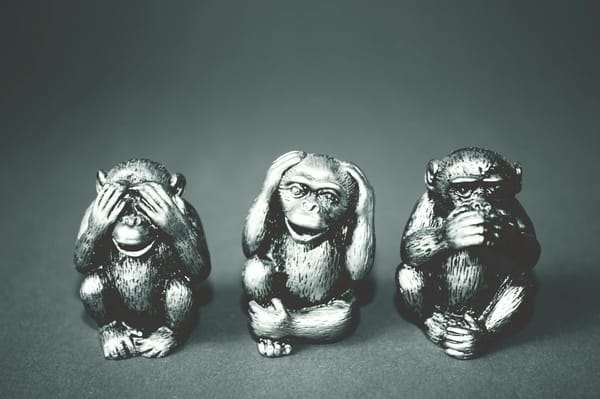We’ve all been lied to about piracy. Many of us have been made to believe that online “pirates” rob artists of their livelihood, while Intellectual Property (IP) law exists as a means of protecting the rights of individual creators to make a profit and protect their integrity.
What the rise of tech monopolies in the last decade has shown us is the opposite: IP law mostly serves corporate interests, while anyone who participates in digital public preservation, archiving and sharing is increasingly criminalized as a “pirate.”
The IP legal regime wasn’t created as an idealistic attempt to protect the rights of creators, but rather to grease the wheels for the further expansion of capital. Here’s how IP law has been used to create monopolies, crush the public domain and hurt the artists its proponents say it serves.
IP Laws And Monopolies
IP — that is, copyright, trademark, patents and to a lesser extent, trade secrets — didn’t really come into vogue until the latter half of the 19th century, notably in England.
At first, when competition was high, industrialists largely opposed expanded trademark and patent protections. Yet as monopolies and cartels grew, they began to support extra protections on trademarks. This is because, according to Marxist economist Michael Perelman, these companies needed more robust legal frameworks for protecting intangible assets such as brand exclusivity, and patents were also incredibly useful for companies in the United States looking to circumvent the Sherman Antitrust Act.
The term “intellectual property” wasn’t used regularly until the post-Second World War economic decline, when companies that had been opposed to state overreach in the past came to view property rights as a means to increase profits.
In the late 1980s, IP began to be even further expanded, at a dizzyingly rapid pace. Since then, scholars and activists have been warning that this expansion is serving monopoly capital in the growing tech sector.
Central European University sociological researcher Jakob Rigi has written about how information itself, especially in the digital age, has nearly zero value because it requires little to no labour cost to reproduce (unlike, say, an iPhone). As a result, it’s nearly impossible to extract profit from information.
So, these tech multinationals are now wielding IP law to extract rents by selling access to, and exclusivity of, information — not by selling the information itself. Trademarks, patents and copyrights are instrumental for monopoly capital because they allow these large companies to extract rents in the form of subscriptions, franchises and licensing fees.
For example, the TRIPS agreement, which brought IP law into multilateral trading, was ratified in 1994. In 1998, United States President Bill Clinton signed the DMCA into law, which is still being tweaked to privilege rights holders.
This dynamic has only been heightened in the past decade, with the Stop Online Piracy Act and Protect IP Act being brought to the U.S. House floor in 2011 with the backing of ISPs and established entertainment industry cartels.
These acts were shelved a year later due to vociferous resistance from a huge array of tech companies (including Amazon and Google), which were, at that point, still in a period of high competition. However, now that some of these companies have succeeded in conquering the “Wild West” of the Internet and establishing monopolies, they’ve totally inverted their position.
IP Laws To Crush The Public Domain
As time wears on, and IP law is used to criminalize all forms of file-sharing and sampling, it becomes increasingly clear that the focus on “piracy” and illegal file-sharing is only a pretext at wearing down what still exists of the public domain to squeeze it for profit. This is because the companies using IP law in this way need to enclose and privatize what remains of the cultural commons to keep up their rate of profit.
In 2002, University of Gothenburg associate professor Johan Söderberg pointed out that digital activists were fighting a major corporate tide against what remained of fair use and the Creative Commons. This has continued, and there are numerous examples of companies cracking down in the past decade alone.
In 2013, Reddit co-creator Aaron Swartz took his own life after prosecutors pursued charges against him carrying sentences of up to 35 years in federal prison for illicitly downloading nearly five million academic documents off of JSTOR. This happened even though JSTOR refused to press charges after Swartz returned the documents he’d downloaded (for reasons unknown, it was actually MIT that let the case go forward).
Then, there’s the ongoing lawsuit to destroy the Internet Archive, brought forward by major publishers such as HarperCollins and Hachette. The suit was in response to the Internet Archive launching the National Emergency Library at the outset of the pandemic, which is a temporary lending program to assist students.
The plaintiffs claim that the Internet Archive “illegally” scans the books it lends, which is not only a deliberate misrepresentation of special exceptions for libraries in the Copyright Act, but, according to The Nation writer Maria Bustillos betrays a “rentier mentality” that could unravel these protections.
Moreover, in late October, Amazon filed to dismiss a complaint from an Prime Video user who claimed the tech giant had engaged in “unfair competition and false advertising” for reserving the right to lock or remove on-demand content after it had been purchased.
Amazon’s motion argues that Prime customers don’t purchase the content they view. Rather, they purchase a “limited license” to consume the content. Already-existing IP law enables Amazon, which in its younger days had opposed SOPA and PIPA, to extend its domain into content streaming via a subscription model.
Shortly after, Twitch — an Amazon subsidiary, purchased in 2014— found itself on the receiving end of ire for its handling of a sudden influx of DMCA notices (in all likelihood prompted by a pandemic-related drop in recording industry profits this year.) In an official blog post published on November 11, the live-streaming service magnanimously describes new rules imposed on streamers to comply with copyright claims on background music, including muting in-game music.
These rules and tools were criticized for being haphazard, draconian and confusing, which led Twitch to issue a slight mea culpa before explaining that users can avail themselves of rights-cleared music libraries including Soundtrack, which they just so happen to own.
The consequences of these digital turf battles over licensing between corporate giants inevitably falls on users, while the spoils of profit and ownership go to the monopolies.
The use of IP to enclose information and sell access in exchange for a rent obviously has wide-ranging effects. When all human knowledge is eventually privatized, public archiving, preservation, curation and skill-sharing will be outlawed, and there will be total corporate control of speech rights.
IP Law Hurting Artists
Even the recent history of IP law shows that many of us, including artists, have been led astray chasing the windmills of “piracy” while monopolies expand into new frontiers. High profile cases like Metallica vs. Napster or Megaupload are instructive, both in terms of the precedents they’ve set and how they’ve helped tech and entertainment companies control the narrative about what’s keeping artists poor.
While it’s reasonable to claim that such third party companies do profit from infringement (unlike the Internet Archive, digital libraries or public domain sites, which rely on work that’s either licensed, out of copyright and otherwise legally obtained), it’s as legitimate to claim that the corporations suing them are just as guilty of theft through IP farming, onerous contracts with obscenely low rates and sometimes outright plagiarism.
These monopolies succeeded in part by destroying file-sharing sites and refining and monetizing the streaming model once they were mostly out of the way. Intellectual property rights are as robust as ever, and the rise of music streaming has actually led to a music industry recovery that began in 2017, after about 15 years of decline following the death of the CD thanks to new, untamed digital technology. Yet somehow artists continue to lose both money and control over the work they make.
The recent Union of Musicians and Allied Workers (UMAW) “Justice at Spotify” campaign demonstrates that the rise of rentier platforms has: lowered the value of creative material to a greater extent than online piracy could ever achieve; made it more difficult for original creators to retain ownership of their work; concentrated the value of this work into fewer hands.
The UMAW list of demands states, “Music workers create all of the enormous wealth Spotify accumulates for its CEO, its investors, and the major labels. But we artists continue to be underpaid, misled, and otherwise exploited by the company.”
UMAW calls for a restructuring of Spotify’s payment model, a 1-cent minimum payout per stream and for Spotify to stop fighting artists in court over rate hikes.
The obvious answer to the question of monopoly capital and the legal regimes it uses to keep itself in power is usually some form of antitrust policy to break them up and increase competition. But we know from history that the nature of capitalism makes these boon periods temporary, volatile and prone to monopolism regardless of the law.
As writer Gavin Mueller has noted, the “cyberlibertarian” bent of preserving market competition and even enabling piracy to favour small business is largely “petty producer fantasies” that ignore the capitalist cycles that lead to monopolies in the first place. It would not be particularly revolutionary to abolish IP law in and of itself, either, as long as the market conditions that make its enforcement more or less preferable remain untouched.
Regardless, digitization is not the problem. It’s a potential public good, representing an important step in the development of cultural productive forces. It means that all the diverse culture of the world can be made available rather than hidden or deleted from existence because of licensing restrictions or creative differences. It means that old film or music, for example, can be eternally preserved and infinitely shared, instead of going up in smoke or rotting in vaults because it isn’t considered profitable.
In fact, in many cases the only thing keeping a piece of media alive is either a digital library or file-sharing site, while confusing copyright schemes may prevent fragile works from being digitized at all. As tech journalist Benj Edwards argued in 2012, pirates perform an important service by preserving old software, including games, programs and other copyrighted but abandoned data that many writers and researchers rely on.
So, the answer to monopolies established through IP isn’t more free competition, but rather the socialization of cultural production — including meaningful support for artists that doesn’t sacrifice public access. This would include a massive expansion of existing library infrastructure, integrating the digitization efforts of online libraries like the Internet Archive or Sci-Hub into a public file-sharing apparatus that would be robustly state-funded and free at the point of service.
This future isn’t being obstructed by technology. It’s being obstructed by the owners of that technology, who use the legal cudgel of IP to extract every last bit of value they can from our dying Earth.
Culture, after all, belongs to all of us. As the novelist Raymond Williams writes, “As for the arts and learning, they are in a real sense a national inheritance, which is, or should be, available to everyone.”






